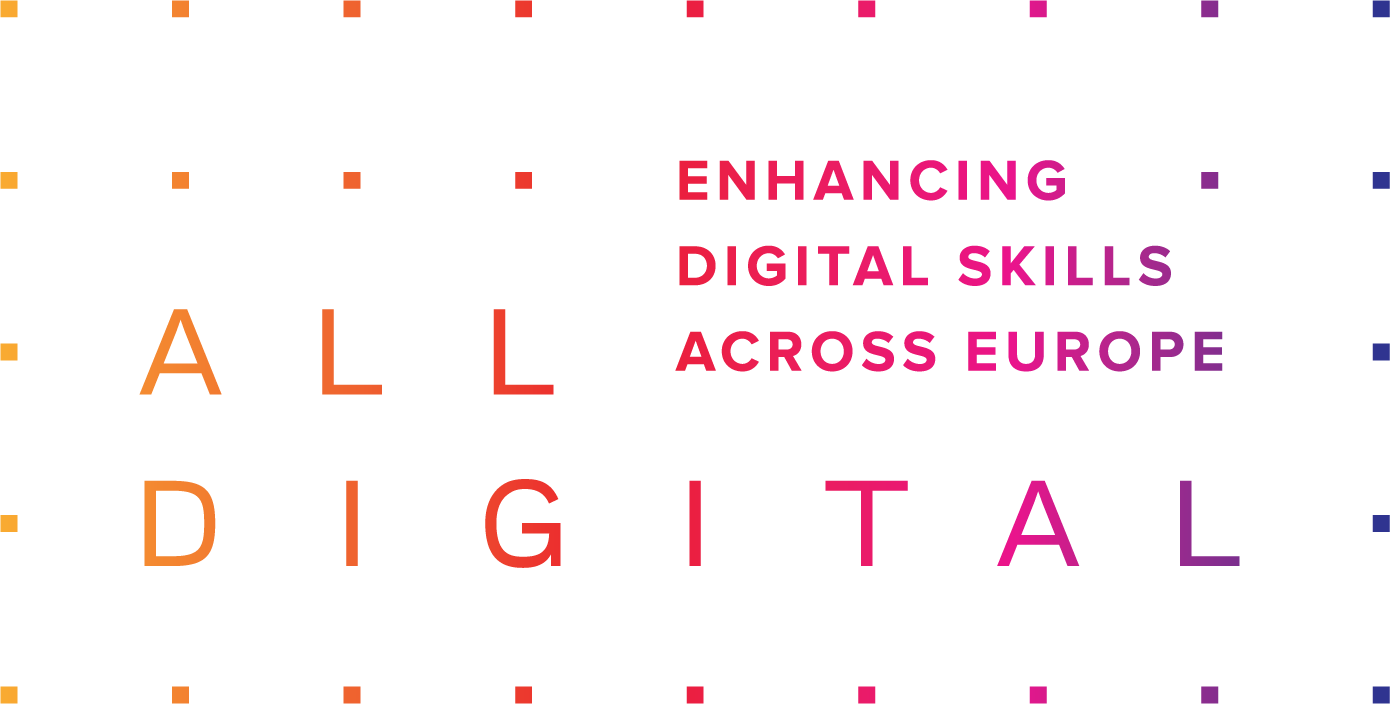All Digital: “To not teach digital literacy to a child today is cruel”

The Brussels-based All Digital is a leading pan-European association representing around 60 non-profit organizations that work with competence centres in the digital and education fields. The mission of the previously known, Telecentre Europe, meets our cover theme, focusing on labour resources, online services and the life-changing experiences that digital is triggering in society. The CEO, Renato Sabaddini, explains in this interview why we should not shy away from this ongoing transformation.
Headquarters: How has your association managed to overcome all the trials and tribulations created by COVID-19? How is ALL DIGITAL holding up to the crisis?

Renato Sabaddini (in the photo): Because of the very nature of the issue we deal with as ALL DIGITAL (digital competences), our organisation and especially our membership throughout all Europe were placed much better than others, in terms of dealing with the immediate necessity of transferring online most of the work done offline. In some cases, our members contributed directly with emergency training of many teachers, so that lessons in schools could continue online during the lockdown. In other cases, unfortunately, face-to-face training for people with very low digital skills had to be postponed until the end of the lockdown.
HQ: ALL DIGITAL regularly promotes workshops and learning courses for people of all ages, special needs and social backgrounds. Where do we stand as a society, in terms of digital transition?
RS: The picture varies a lot depending on which countries you consider in the European Union. If you look at the Digital Economy and Society Index produced by the European Commission, every year on the basis of data collected by Eurostat, you can see that for the whole of the EU, 42% of the population does not have sufficient digital skills, which means, for instance, that they know how to send emails but not upload content created by themselves on the internet. Or they can look for health related information on the internet, but are unable to transfer a file, etc. That 42% at the EU level, however, goes down to 21% in the Netherlands and rises to 71% in Bulgaria, so there is still quite a lot of work to do before all Europeans are equally digitally literate.
HQ: ALL DIGITAL states in its manifesto that “the development of digital competences must be sustainable, context-aware, open, persisting, evolving, adaptable and communicative”. Do your goals include building a digital society in line with environmental sustainability?
RS: Digital competences are, in essence, the third form of literacy, together with literacy and numeracy, that no human being alive can really afford not to have. To not teach digital literacy to a child today is as cruel and inconceivable as not teaching them literacy and numeracy. True inclusivity is at the core of the work of digital competence centres. As far as environmental sustainability is concerned, the lockdown has shown us how many jobs can continue to take place also without the need for people to gather daily in an office, thanks to digital competences (and an infrastructure up to the task, of course; you cannot work from home if the connection is always bad). Small and large companies all over the world are seriously reconsidering their logistics in terms of offices. Also in light of the fact that a significant reduction or even elimination of commute times is beneficial not only to the environment, but to the productivity and wellbeing of the workforce.
HQ What will be ALL Digital's priorities for the last quarter of the year with regard to innovation and technology?
RS: Our priorities will depend on drawing the right lessons from the COVID-19 pandemic and its effects on the economy. The role of digital competences has become more evident than ever and it is crucial to keep an eye on innovations that might make the delivery of the digital competences training easier. Particularly to those who will need them the most, having lost their jobs. Needless to say, the institutions, the national governments in particular, play a very important part here: what policies are they going to put in place so that their citizens can re-train and upskill themselves to increase their chances to find employment in this radically transformed world? There are interesting possibilities around, like the Individual Learning Accounts adopted by France, where a person receives an annual amount of money in an account that can be used to obtain training and increase the likelihood of finding a new job. Like the European Commission, we would be in favour of seeing other governments going in a similar direction.
HQ: ALL DIGITAL SUMMIT 2020 took place this month under the theme ‘competences for the future’, foreseeing a very important role of our jobs and skills in digital transformation. What impact will this have on the life of associations?
RS: Our Summit offered a platform to take stock of a digital transformation that the pandemic seems to have accelerated by much. In particular, we looked at what lessons could be learned from the lockdown in terms of remote teaching methodology, how the digital competence centres of the future will have to change, how to create a certification system of competences that is recognised everywhere in the continent. All issues that deal, ultimately, with the employability of people, with their readiness to navigate a new world. The Summit took place for the first time entirely online, with an innovative formula based on the use of a few locations around Europe functioning as broadcasting studios. We found that this formula was very much appreciated and I believe that even once the pandemic is over, we are going to have hybrid events rather than just onsite events as in the past.
HQ: What kind of rules and regulations are you expecting from European authorities to further harmonise your sector across member states?
RS: Education and employment are areas of shared competences between the EU and its Member States, with the last word, in most cases, still left to the states. There needs to be, therefore, greater consistency between what the states declare to want when meeting in Brussels and what they are actually ready to do once back in their own capital cities. For the time being, let us say that at the very least we would expect the European Parliament and the European Council to adopt a Multiannual Financial Framework – the 7-year budget of the EU – that properly funds civil-society-driven initiatives and projects addressing the lifelong learning needs of the population, especially in relation to digital competences.
For More Info:
Email: info@all-digital.org
Website: all-digital.org
Other Articles
About Us
Supported by the Union of International Associations (UIA), the International Association of Professional Congress Organisers (IAPCO) and the Interel Group, the global public affairs and association management consultancy, Headquarters Magazines serve the needs of international associations organising worldwide congresses.














